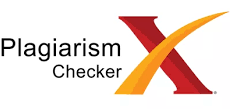E-Money: Contemporary Fiqih Review
Abstract
One of the problems of contemporary Islamic Economy is the development of non-cash payment instruments, especially e-money. This research is a qualitative study to obtain legal status for non-cash transactions using e-money. Clarity of legal status regarding the use of e-money is of course expected to accelerate the process of adoption of Muslims. The fact of e-money is like a debit card, because the money used in electronic money is consumer money, not debt accompanied by usury, so the stastus for using electronic money is actually a “hawalah” contract. Electronic money in the “hawalah” contract can be called “muhal bih” (debt transferred). Thus, the issuance of cards that function as money like this alloweb by sharia law. So, the administration fee and manufacturing of the cards, allowed too. In addition, there is no “gharar” in this electronic money.
Full Text:
PDFReferences
Abdullah, Muhammad H (2003), "Mafahim Islamiyah: Sharpening Understanding of Islam", translation by M Romli, al-Izzah, Bangil.
Abdurrahman, Asmuni, "Qa'idah-Qa'idah Fiqh (Qawa'idu Fiqhiyah)", Bulan Bintang, Jakarta.
Abdurrahman, Yahya (2017), "Ta'rifat: Encyclopedia of the Tsaqafah Islamiyah Terms", Volume 1, al-Azhar Fresh Zone Publishing, Bogor.
Ar-Rifa'i, Muhammad N (2004), "Summary of Ibn Kathir's Tafsir Volume 3", translation by Syihabuddin from Taisiru al-Aliyyul Qadir li Ikhtishari Tafsr Ibn Kathir, Gema Insani Press, Jakarta.
Al-Banjari, Fauzan (2016), "Guidelines for Writing Sharia Business Contracts", Sharia Business Clinic, Banjarmasin.
Bank for International Settlements (1996), "Implications for Central Banks of the Development of Electronic Money", Basle.
Bank Indonesia (2009), "Bank Indonesia Regulation Number 11/12 / PBI / 2009 concerning Electronic Money", Jakarta.
Bank Indonesia (2014), "Bank Indonesia Regulation number 16/8 / PBI / 2014 concerning Amendments to Bank Indonesia Regulation number 11/12 / PBI / 2009 concerning Electronic Money", Jakarta.
Bank Indonesia (2018), "Bank Indonesia Regulation Number 20/6 / PBI / 2018 concerning Electronic Money", Jakarta.
Hasanah, Linda N (2018), "Legal Position of Electronic Money (E-Money) in Conducting Non-Cash Payment Transactions (Analysis through the Approach to Laws and Islamic Law)", (Thesis), State Islamic University of Maulana Malik Ibrahim, Malang.
Hidayati, Siti, et al. (2006), "E-Money Operations, Bank Indonesia", tt.
Ismail, Muhammad (2014), "Fikrul Islam (The Flower of Islamic Thought)", Translation by Hafidz Abdurrahman of al-Fikru al-Islam. Al-Azhar Press, Bogor.
Khalil, ‘Atha (2003), “Usul Fiqh (Study of Usul Fiqih Easy and Practical)”. Translation by Yasin as-Siba’i from Taisir al-Wushul ila al-Ushul (2000). Reader Thariqul Izzah, Bogor.
Kurniawan, A (2017), "Muamalah Sharia Trading Business", Justitia Legal Journal, Volume 1 No.1 April 2017.
Muamar A., Ari Salman Alparisi (2017), "Electronic money (e-money) in the perspective of sharia maqashid," Journal of Islamic Economics Lariba (2017). vol. 3, issue 2: 75-84.
Nabhani, Taqyuddin (2017), "Building an Alternative Islamic Perspective Economic System", Translation by Maghfur Wachid, from An-Nidlamu al-Iqtishadi fi al-Islam; mu'tamadah edition. Surabaya: Minutes of Gusti.
Tazkiyyaturohmah, R (2016), "El Money Transactions", ktronik Judging from the Sharia Business ", (Thesis), UIN Sunan Kalijogo, Yogyakarta.
Triono, D.C. (2017), "Islamic Economy Madzab Hamfara", Volume II (Islamic Market Economy), Irtikaz, Yogyakarta.
http://www.depokpos.com/arsip/2017/11/kontroversy-seputar-e-money-halal-atau-haram/, web address accessed on 2 February 2019.
Refbacks
- There are currently no refbacks.
Annual Conference on IHTIFAZ: Islamic Economic, Finance and Banking(ACI-IJIEFB)
Kampus 4 Universitas Ahmad Dahlan
Jl. Ring Road Selatan, Tamanan, Banguntapan, Bantul, Daerah Istimewa Yogyakarta 55191
Telp. (0274) 563515; Fax. (0274) 564604
E-mail : ihtifaz@uad.ac.id

_1.png)


